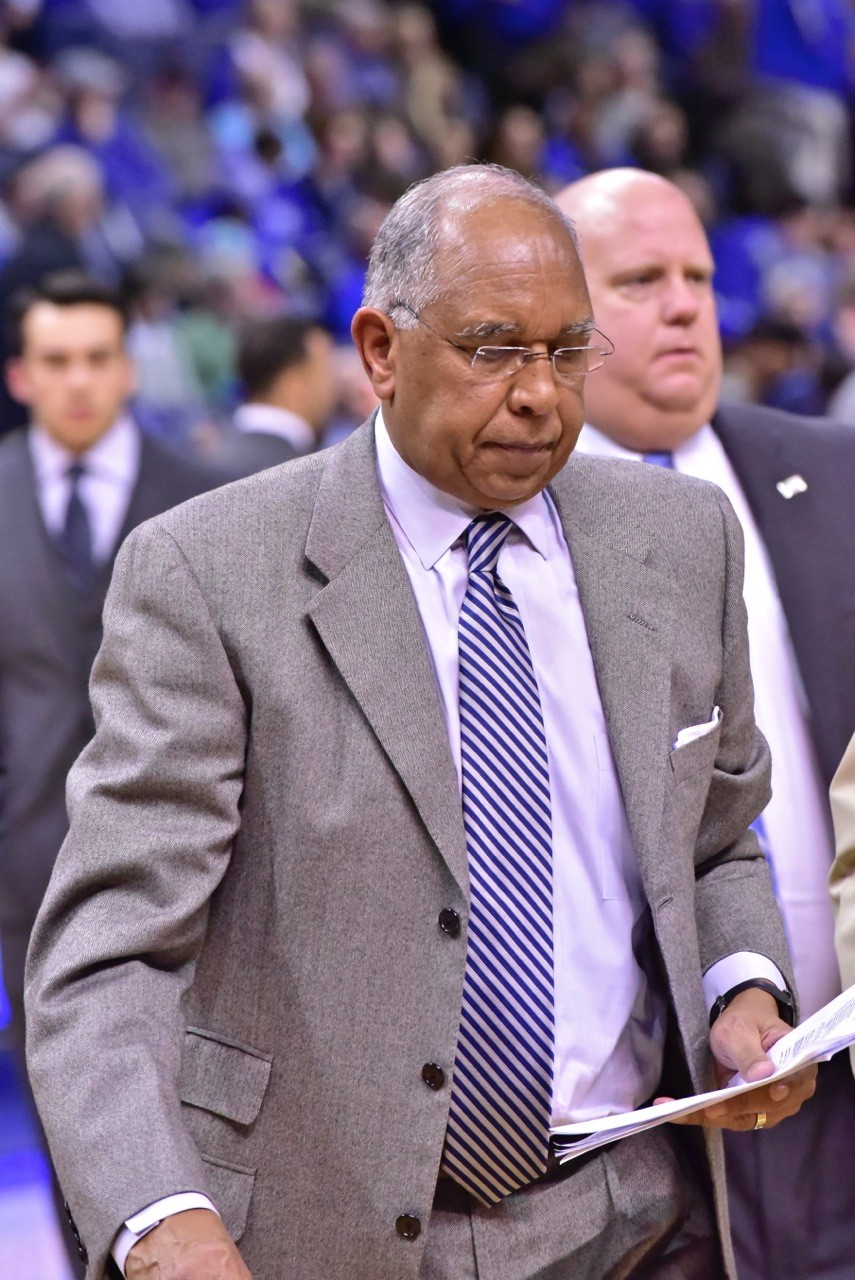No college basketball team can hide a shortage of talent. Creative coaching can mask shortcomings — and even expose those of an opponent — enough to win a few games a team probably shouldn’t. But over the course of 30 games? Talent prevails. Always.
The 2017-18 Memphis Tigers were unmasked, you might say, in a pair of recent losses (part of a tailspin that’s included five defeats in six games). First came the embarrassing overtime loss at East Carolina, in which the poorest-shooting team in the country buried 11 three-pointers over Memphis defenders. Three days later at FedExForum, Tiger starters managed to score a total of five field goals against Wichita State. Two completely unrelated components of basketball: a poor defensive team can shoot the lights out, or a poor shooting team can play lockdown defense. But over the course of two games in four days, the University of Memphis displayed the kind of shortages no NCAA tournament team will display in combination.

Even during times of struggle, recent Tiger teams have had a backbone defender, be it a rim protector (like D.J. Stephens) or a gum-sniffing perimeter weapon (like Markel Crawford or Geron Johnson). The current Tigers have neither, and it’s been costly. In the East Carolina loss, Pirate guard Shawn Williams hit six of ten three-point attempts and scored 30 points to key his team’s win. Williams averages 10.8 points per game and is shooting 34 percent from long range. In the Wichita State game, Shocker guard Austin Reaves lit up the Tigers, hitting five of nine three-point attempts and scoring 22 points. Reaves averages 8.2 points per game. In old basketball movies, a coach gets up during one of these outbursts and assigns a player to find out what flavor of gum the marksman is chewing. Tubby Smith does not have that player in his arsenal.
You’d like to think that defense is easier to teach a college player than offensive skills (it is), but the Tigers’ struggle against long-distance shooting isn’t improving. Alabama buried 11 treys in the Tigers’ opening name last November. Louisville and Siena each hit 14 in back-to-back games in December. Tulane hit 14 and Temple 12 in games Memphis won this year. Among flaws to suffer in modern college basketball, an inability to defend three-point shooting is as close to fatal as they come.
If only the Tigers’ woes could be left on the defensive end of the floor. In that loss at East Carolina — in overtime, remember — one or two key plays would have turned the contest in the Tigers’ favor. It was a lousy day for the Memphis bench to take a snooze. Coach Tubby Smith sent five reserves to the floor. They combined to play 45 individual minutes and contributed exactly four field goals. Three days later, those reserves awoke and scored 40 of the Tigers’ 65 points in the Wichita State loss. This time, though, the starters disappeared, five players combining to score five field goals. If you’re Tubby Smith, to whom do you turn when a run is required?
Consider the season stat line of one Tiger, a player who has started the last 18 games: 6.2 points per game, 2.8 rebounds, 1.1 assists, 32-percent field-goal percentage (30-percent from three-point range), 25.8 minutes per game (third on the team). Perhaps it’s unfair to pick on freshman Jamal Johnson, but in some respects, he personifies the Tigers’ defective roster. He’s a growing, developing talent. In no way, though, is Johnson a starter for a team with NCAA tournament aspirations. Far too much still to learn. (Particularly if pregame scuffles are part of his repertoire, as reported after Sunday’s loss to UCF.)
Following the UCF loss, I asked Smith for an impression of his team’s collective mentality as the season spirals downward, if players can somehow remain focused on improving this late in the campaign. “When things aren’t going good, negative thoughts come in,” he said. “Why is Coach not playing me? Why are we doing this? It’s . . . why. I’m sure they’re talking among themselves, and about a lot of different things.”
Smith has asked for patience from a notoriously impatient fan base. He’s expressed — quite openly — that the right people are in place, and the program is on the right path. Smith’s mantra for the present and future of Memphis Tiger basketball: It takes time.
“We passed the ball better today than we have in a few games,” Smith noted Sunday. “We did some good things. But in the clutch, you have to be willing to sacrifice. And team defense . . . we haven’t had it all year long. A lot of guys, that’s not what they did [before arriving here]. You better trap hard. You better box out hard. Or you’re going to get intimidated. That physicality is something we’ve lacked most of the season. To change that mentality, we probably need to do more physical drills.”
Memphis hasn’t had a losing season since 1999-2000, when the Tigers went 15-16 under interim coach Johnny Jones. The current team is 14-11 with six regular-season games to play before the American Athletic Conference tournament in Orlando. Two more wins would clinch a .500 record, and that’s reality for University of Memphis basketball in 2018. Forget the Sweet 16, much less the Final Four. Even the NIT seems beyond reach. Scrap, fight, get more physical, coalesce as a group, and a break-even record could happen. From there . . . deep breaths and a thorough evaluation of how patient a program of this stature can be.